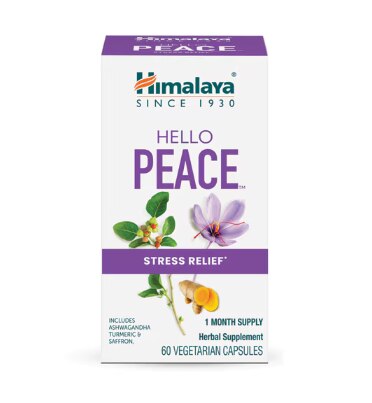From vagus nerve stimulation to blue zone diets to sauna blankets, the global consumer wellness market is topping out at $1.8 trillion. This market is no stranger to fads, which often surface with limited clinical research or credibility. The pursuit of wellness, as in over-exercising, obsessive dieting, or even too much focus on mindfulness, can paradoxically result in burnout. It’s the quiet implosion that can arise from a self-imposed regime of health discipline.
What is wellness fatigue?
Wellness fatigue is a phenomenon where individuals feel overwhelmed or exhausted by the constant pressure to engage in the cult of self-betterment, often driven by societal expectations around the pursuit of an idealized version of health. Vogue UK defines wellness fatigue as “slavery to relentless health trends have resulted in redundant household clutter as well as emotional exhaustion.” Clutter refers to where wellness detritus goes to die—vegetable spiralizers, fitbits, neti pots, yoni steamers, squatty potty etcetera.
All of it is integral to the “wellness-industrial complex”—the late-capitalist industry organized around optimizing our bodies to be as thin, buff and glowy as possible. But what we really talk about when we talk about wellness fatigue is often code for dieting fatigue, as in the treadmill of restrictive eating that often alternates with binging. What we talk about when we talk about wellness fatigue is really a kind of soul hunger. We mistakenly look for real nourishment, the kind that brings us peace and radical acceptance, in all the wrong places.
What happens when we redirect the energy focused on the physical to tending to our hearts? Here are four tips on how to refresh your relationship to wellness.
Toxic wellness
People often feel pressured to maintain a “perfect” wellness routine, including fitness, dieting, meditation and other self-care activities. This perfection burden can come from social media, where influencers and brands promote an idealized version of wellness, spur people to try to meet unrealistic standards.
While wellness practices are intended to reduce stress and improve health, the pressure to adhere to them can have the opposite effect. This paradox can make you feel guilty for not keeping up with wellness trends or failing to meet your wellness goals. All of this can undermine mental health.
Try: Turn the search from external to internal. Unfollow the wellness “cops” on social media, the wellness vigilantes who come on overly strong. Ask yourself what makes you feel good? Where is your happy place? Can you lean into what you love, be it sailing, kickboxing, dancing, gardening or hula-hooping and deepen into that, regardless of if on trend? Figure out what brings you wholeness and build your wellness platform around that. For example, if reading is your jam, maybe you do a loop around a park while listening to a book on tape.
Celebrate each wellness win, no matter how small. Stop the habit of micro self-aggressions, especially when directed at yourself for deviating from your wellness routine.
The wellness industrial complex
The wellness industry has become a multibillion-dollar sector, with an ever-expanding range of products, apps and services. The commercialization of wellness often blurs the line between genuine health practices and consumerism. Product claims often are inflated, use hyperbole, and contain misleading information. Be skeptical.
Try: Revisit the basic health staples, which don’t involve fancy purchases. At the core of any health routine is sleep, food, exercise, stress management, community, fresh air and being outdoors in nature.
Exhaustion follows obsession
Wellness fatigue can lead to emotional exhaustion. Constantly tracking progress, counting calories, and comparing oneself to others can drain your mental energy. Instead of feeling rejuvenated, you might end up feeling drained, frustrated, and anxious. If left unchecked or unexamined, the obsession with wellness can lead to serious physical and mental disorders like orthorexia (an obsession with healthy eating) and over-exercising.
Try: What feeds your soul? Even worse for you than over-eating and under-exercising is feeling isolated and alone. Is your wellness routine causing you to spend more time by yourself? Being social with your chosen tribe can do as much for your health, if not more, than getting a chiseled body. Researchers from Brigham Young University completed a comprehensive study in 2010 that followed more than 300,000 people for an average of 7.5 years. The study shows that the mortality risks associated with loneliness exceeded those associated with obesity and physical inactivity and were comparable to the risks of smoking. If you focus solely on your health at the cost of social connection, you might be sacrificing some essential but invisible wellness points.
Go easy on hustle
Many people experiencing wellness fatigue feel guilty about taking time off or resting. The “hustle culture” overlaps with wellness culture, where rest is sometimes seen as a sign of laziness, creating a constant cycle of guilt when people are not actively engaged in self-improvement.
Try: Take a day off. Unplug. Nap. Dare to completely rest without any guilt whatsoever.
Consider rejecting extreme wellness culture in favor of more balanced, realistic approaches to your health. This may include embracing imperfections, focusing on what feels good rather than what looks good, and practicing self-compassion as much as self-discipline.




